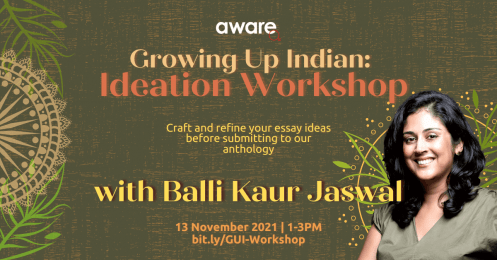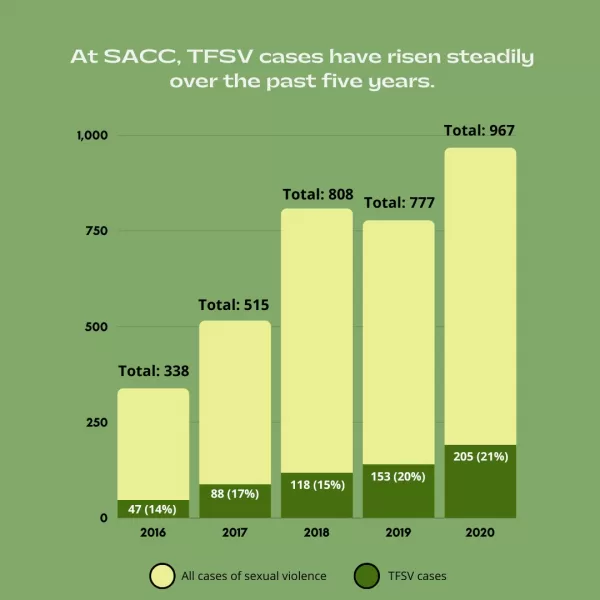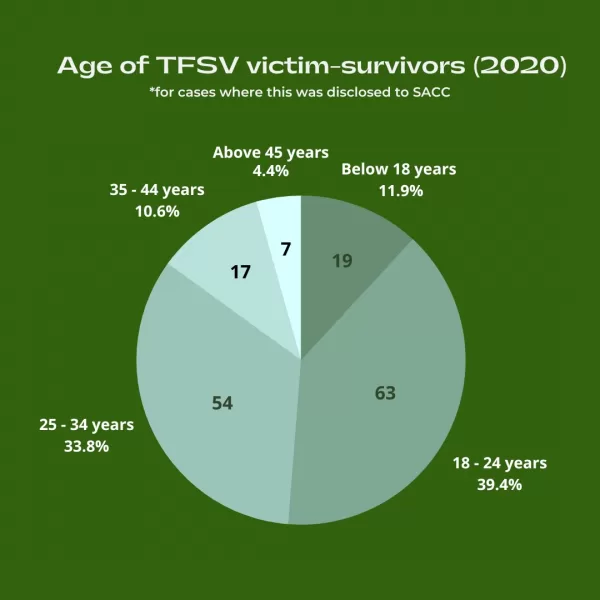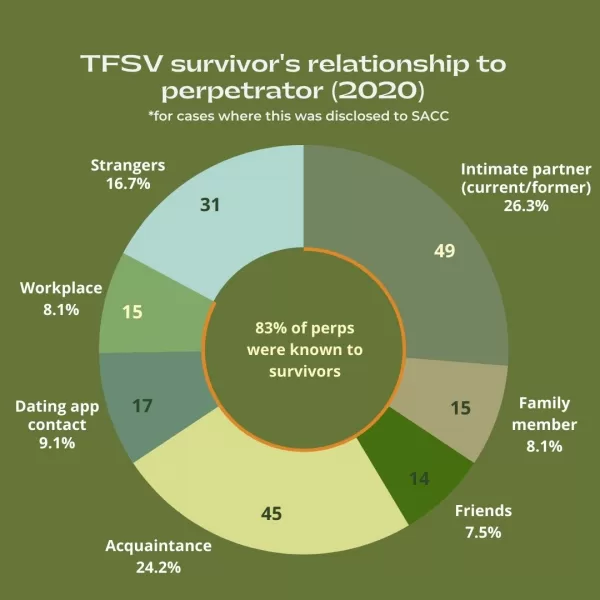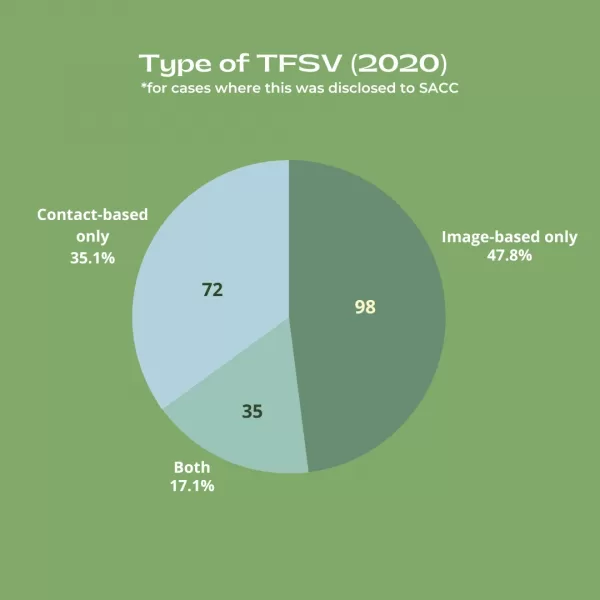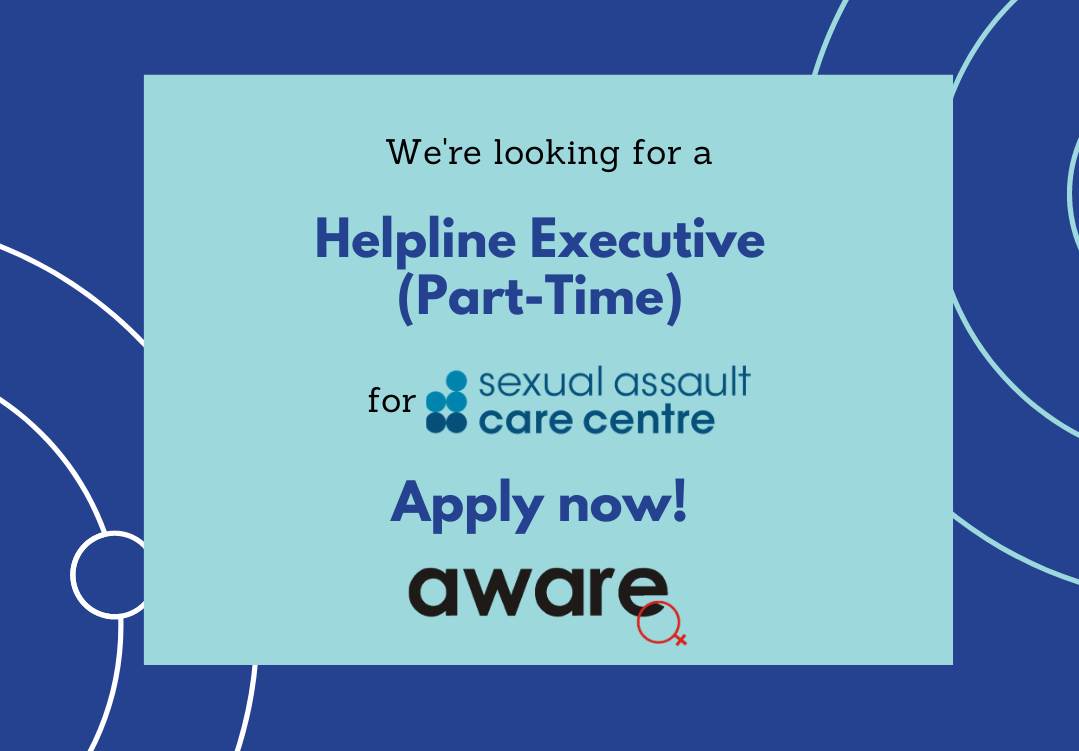
This letter was originally published in ChannelNews Asia on 2 March 2021.
SINGAPORE: Experts have long maintained that workplace sexual harassment is rooted in power imbalances.
The stereotypical perpetrator holds a powerful leadership position – for example, as a CEO or the head of a studio.
The stereotypical target is a colleague in a junior position – a secretary, say, or an aspiring actor.
You might thus reasonably expect that workers lower down on the totem pole – who have less professional stature and are more easily replaced, hence more vulnerable – would experience more harassment than those in powerful positions.
However, the truth is not quite so simple.
The first nationally representative survey of 1,000 respondents on workplace sexual harassment in Singapore, recently completed by AWARE and Ipsos, has revealed that female managers experience workplace sexual harassment at higher rates than female non-managers – while in managerial positions.
A closer look at different types of sexual harassment revealed discrepancies in prevalence between female managers’ and non-managers’ experiences.
For example, 10 per cent of non-managers had received promises of enhanced career prospects in return for sexual favours and threats to their career prospects if they didn’t return unwanted sexual advances.
On the other hand, managers reported experiencing both these forms of harassment at double the rate of non-managers at 21 per cent.
International research has provided similar evidence that women in supervisory roles seem to experience greater levels of harassment.
A 2012 US-based study by the universities of Minnesota and Maine analysed longitudinal survey data of 522 respondents, as well as qualitative interviews with 33 men and women.
One manager who experienced workplace harassment told those researchers she felt she had to “put up with [it]” to keep her job and maintain working relationships with colleagues.
Our survey found that many female managers didn’t report their harassment because they just wanted to forget about the incident. Almost one in five felt that reporting the incident would backfire on them – impacting their professional career or damaging their reputation.
HARASSMENT AS A POWER EQUALISER
One possible reason why this happens is female managers are perceived as threats in their typically male-dominated workplaces.
A woman wielding organisational authority subverts traditional notions of masculinity and is an obstacle to male bonding at work.
Sexual harassment becomes an instrument of equalising power to “put women in their place.”
According to Heather McLaughlin, the author of the 2012 study mentioned above, harassment is a way of undermining a powerful woman’s credibility: “Instead of your boss, she’s just a woman on a power trip.”
Examples of such harassment include inappropriate, sexual remarks about women’s bodies by male peers and subordinates.
When interviewed for AWARE’s upcoming study on the career and financial effects of workplace sexual harassment, a 45-year-old manager in the predominantly male IT industry revealed that she was frequently verbally and physically sexually harassed by a subordinate, whose actions included forcibly kissing her on the cheek and lips.
Even though the manager had more than 20 years of work experience and had managed this man for four years, her attempts at pushing him away did not deter him at all.
This antipathy towards women in power may also be why female managers more frequently have to deal with harassment involving the attribution of their professional success to their sexuality.
The underlying premise is that a woman’s success is a result of providing sexual favours, an idea that not only diminishes the hard work of many female leaders, but also besmirches their reputations and undermines their authority.
University of Illinois psychologist Louise F Fitzgerald, refers to this as “gender harassment” or “sexist hostility”: A subset of sexual harassment aimed at conveying insulting, hostile and degrading attitudes about people of a particular gender.
ALONE, WITHOUT SAFETY IN NUMBERS
Another reason for the paradox of power may be that the presence of women starts to thin out at higher leadership levels.
According to executive recruitment firm Robert Walters, women hold only 21 per cent of senior management roles in corporations in Singapore, which is similar to regional and international levels.
Being only one in every five organisational leaders makes easy targets of the few women at the top. A lone female departmental head in a sea of men is bound to be highly visible, whether or not she wants that attention.
The most prevalent types of workplace sexual harassment revealed by the AWARE-Ipsos survey were crude, distressing sexual remarks, and inappropriate texts, emails, or other digital communications.
Due to the popular misconception that non-physical acts of harassment are “not as serious” as assault, these types of sexual harassment are often dismissed as “harmless jokes” or “office banter” – inherent to company culture.
This attitude blames victims for making a mountain out of a molehill, and assumes they should adapt to the culture around them, not vice versa.
In the case of women in power, this kind of culture pressures them to get along with the other (male) managers for the sake of the organisation, and to let certain types of sexual harassment slide.
Time and again, we see women in male-dominated industries, force themselves to accept and even adopt masculine cultural norms.
By acting like “one of the boys”, they inadvertently end up exacerbating the problem by contributing to the normalisation of a toxic workplace culture.
KNOWLEDGE OF WHAT CONSTITUTES HARASSMENT
Perhaps the survey findings reveal some good news too: Perhaps female managers report higher rates – 49 per cent as compared to 26 per cent of non-managers – of workplace sexual harassment in part because they are more knowledgeable about it.
The lack of knowledge is a very real barrier to combatting sexual harassment.
When asked if they had been sexually harassed in the past five years, one in five respondents of the AWARE-Ipsos survey only realised what they had experienced was problematic after sexual harassment scenarios involving verbal comments, explicit texts and memes were described to them.
But when various harassment scenarios were described – including verbal comments and explicit texts or memes – two in five indicated having experienced those behaviours.
This speaks to a gulf in understanding of harassment across our workforce.
Workplace training sessions tend to be directed at managers, enabling them to respond sensitively to situations of harassment.
Consequently, managers are more aware of what constitutes harassment.
It makes sense, therefore, that managers would more readily identify themselves as having experienced it compared to non-managers who may not be similarly trained.
LEVERAGING SYSTEMIC POWER TO PROTECT EMPLOYEES
It seems that for working women, power – like physical attractiveness – is yet another double bind. Women are penalised in some ways for having too little power, and penalised in others for having too much of it.
As far we know, most workplaces, even those with robust anti-harassment trainings, do not take into account the risks that female managers face when it comes to sexual harassment.
Acknowledging that power does not necessarily protect is only the first step. What next?
Recognising that the issue is organisational and systemic in nature, not an individual problem, we should introduce national legislation specifically against workplace harassment in Singapore.
Such a legislation would go beyond the scope of existing criminal laws, which focus on obvious crimes such as molest, outrage of modesty or involuntary use of force, and the Protection from Harassment Act (POHA).
It would signal societal intolerance for workplace sexual harassment while also providing vital recourse to its victims.
This law should provide a definition and examples of workplace sexual harassment, ensure protection for all workers, and enforce employer liability for workplace sexual harassment.
Although strong anti-harassment policies by individual employers will also do the job, due to the urgency of this problem, we cannot wait for companies to get to this on their own time.
A national legal framework would jump-start the process.
Even a law cannot achieve everything. Employers still need to better equip themselves to deal with the problem.
Every organisation should create a well-defined sexual harassment policy that includes examples of prohibited behaviour, as well as a comprehensive reporting and grievance procedure.
By taking these steps, we can work towards mitigating sexual harassment, irrespective of gender, industry, or position of power.
Shailey Hingorani, Head of Research and Advocacy, AWARE





